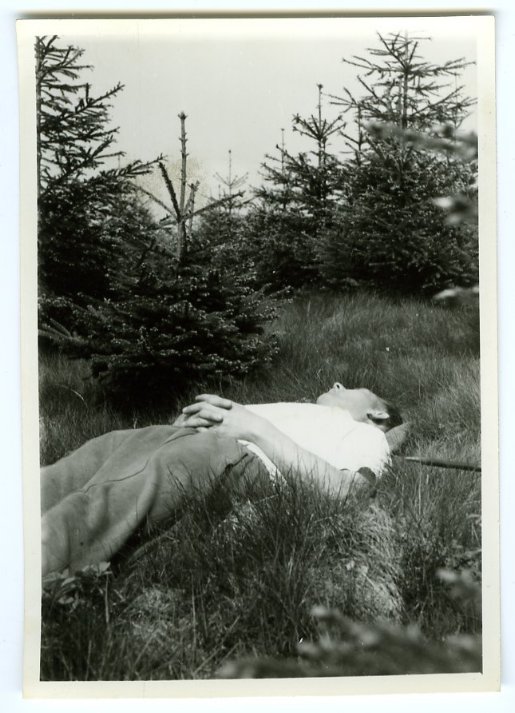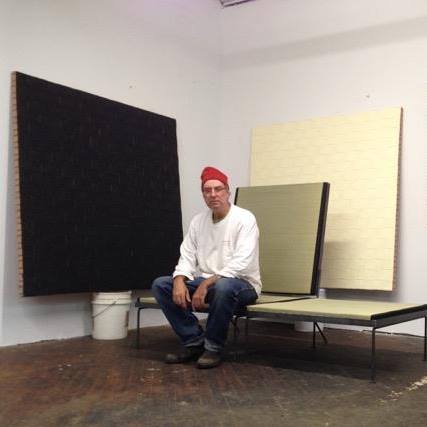Schwarz
View current page
...more recent posts
vegas on the arabian gulf
rip texas girl anna nicole
Worker Shortages Post-Katrina Send Businesses out of Mississippi
Facing a housing shortage along the Gulf Coast, many companies are finding it difficult to find employees and as a result, are being forced to relocate. The NewsHour reports on how Mississippi businesses are grappling with the economic aftermath of Hurricane Katrina.
IMPORTING FOREIGN WORKERS
JEFFREY KAYE: Some Mississippi companies are using workers from much farther away than neighboring states. They're importing hundreds of employees from abroad.
Late last year, Signal International, an oil rig construction and repair company, brought in some 300 workers from India. Working as welders and pipe fitters, they've been issued temporary visas by the federal government under a program that allows companies that can't find U.S. employees to import foreign nationals.
The Indian workers live in housing inside the shipyard. They have to pay room and board. The company wouldn't let us shoot there, nor would they provide a representative for an on-camera interview. But off-camera, a Signal vice president told us the company also uses hundreds of workers, provided by labor contractors, including many guest workers from Mexico.
The Mexican workers -- about 300 of them -- live in a fenced-in compound at a site that's near the shipyard. When we started to interview the workers, the labor contractor that brought them in, Knight's Marine and Industrial Services, told us to leave. They refused to answer any questions.
The workers live in wooden sheds without windows, plumbing or insulation. They sleep in bunk beds -- six to a cabin -- where they store food. These pictures were taken and provided to us by workers who asked to remain anonymous, saying they feared retribution.
Putting foreign workers up in sheds may represent an extreme response to the labor shortage. But Mississippi businesses worry that the problem will not be resolved easily or soon. Bruce Nourse is vice president of MGM's Beau Rivage Casino in Biloxi.
BRUCE NOURSE, Beau Rivage Casino: We lost about 70,000 homes on the Mississippi Gulf Coast. We have never built more than 2,500 homes in one year on the Gulf Coast. So just by virtue of that fact, it'll take us years to recoup what we had prior to the storm.
JEFFREY KAYE: The rebuilding brings with it a catch-22: As government and insurance money flows in, the demand for workers will be even more urgent.
spinal tap
BIG BOYS Austin TX punk, 'Funk Off' / 'Baby, Let's Play God'
Butthole Surfers - Who Was In My Room Last Night? (224 hits)
On Monday, the Harvard University Art Museums released a long-anticipated scientific study, performed with the cooperation of Alex Matter, of the chemical properties of three of the paintings, finding that some paints and pigments used in the works were not patented and probably not available until long after Pollock died in 1956. Alex Matter and Dr. Landau, who has conducted extensive research into the connections between Herbert Matter and Pollock, have questioned some of the findings, and Mr. Matter stressed in a statement that he believes “the authentication of works of art is still more art than science.”
The team at Harvard responded the way that scientists generally do: by saying that there is no arguing with science. Drawing an analogy to what he said were Bush administration efforts to suppress NASA information about global warming because it was politically unpalatable, Narayan Khandekar, a conservation scientist at Harvard, said in an interview that he and others who conducted the study were “absolutely sure” of their results and that quibbles about what they found struck him as disingenuous.
“I think it’s very much dismissing information because it’s inconvenient for their arguments,” he said, adding that such an approach to scholarly debate is “a little like Stephen Colbert’s concept of truthiness, where you’re almost there but you don’t have the whole thing.”
Dr. Landau said she did not reject science reflexively over her own experience, but added that she simply cannot reconcile the study’s findings with the other information she has collected, like a handwriting study that confirms the notes on the package were in Herbert Matter’s hands and evidence that the paintings had been corrected and retouched in a method that Pollock employed.
Residents of several neighborhoods in the New Orleans area that were hardest hit by flooding after Hurricane Katrina can sue the Army Corps of Engineers over their claims that a government-built navigation channel was largely to blame, a federal judge ruled yesterday.
Successful lawsuits against the corps could result in billions of dollars in damage payments.
Since the flood, those who lived in the devastated neighborhoods near the east side of New Orleans — including the Lower Ninth Ward, New Orleans East and St. Bernard Parish — have contended that the Mississippi River Gulf Outlet caused much of their damage by intensifying the surge from the storm. The damage, they say, was foreseeable.
Factory Girl is Edie for Dummies
Miller, meanwhile, works very hard at her Edie. She does the voice and the laugh and the style to a T, though she never nails the ineffable, effervescent vitality. Who could? On the one hand, Edie is a walking cliché: the poor little rich girl who burned bright then burned out. On the other, shes as enigmatic as Warhol, a white-light/white-heat lightning bolt from the zeitgeist, showering the scene with giddy radiance. You need but see her in Vinyl, her Factory film debut, holding down a corner of its deep-space S&M tableau doing nothing but flicking a cigarette and bopping her head, to get her enchantment. Chief among Hickenlooper's follies is his restaging of Vinyl; I'm glad his heavy hand laid off Kitchen, one of my favorite Warhol two-reelers, in which Edie gives a charmed, hilarious performance punctuated by nonstop sneezing, the signal she's forgotten a line.
Hickenlooper makes up for it with his mutilation of Beauty #2, the richest of Warhol's cine-interrogations and the apex of Edie's underground Superstardom. Plunked on a bed with a chunk of stud named Gino, Edie submits to the offscreen questions of Chuck Wein (a clueless Jimmy Fallon), an old friend of Edie's whose crucial and controversial role in the Factory ecosystem is here glossed over. Factory Girl literalizes the rape scenario implicit in Beauty #2, escalating into the vulgar (and wildly exaggerated) spectacle of Wein forcing Gino on the distressed starlet.
wasnt edie ciao! manhattan for dummies?
photographic portfolio of an unknown modernist highschool
dig the crazy work on the wall in the art room.
Fillmore 1960s Sunday Hippie Chrch Photo 4x6
no i dont watch barkitecture. i have a cat.
pronounced : sau-na

nyc highrise ceiling leak
rip liberal texan-american molly ivins
The Ecstasy of Influence
A plagiarism
Posted on Wednesday, January 31, 2007. Originally from February 2007. By Jonathan Lethem.
All mankind is of one author, and is one volume; when one man dies, one chapter is not torn out of the book, but translated into a better language; and every chapter must be so translated. . . .
—John Donne
There’s a lot of water in the air. It rises from the surface of the oceans to a height of almost 100 kilometres. You feel it in high humidity, but there’s almost as much invisible moisture in the air above the Sahara or the Nullarbor as there is in the steamy tropics. The water that pools beneath an air-conditioned car, or in the tray under an old fridge, demonstrates the principle: cool the air and you get water. And no matter how much water we might take from the air, we’d never run out. Because the oceans would immediately replace it.
Trouble is, refrigerating air is a very costly business. Except when you do it Max’s way, with the Whisson windmill. Until his inventions are protected by international patents, I’m not going to give details. Max isn’t interested in profits – he just wants to save the world – but the technology remains “commercial in confidence” to protect his small band of investors and to encourage others.
One of the three Frank Lloyd Wright houses in the Puget Sound area is on the market, a perfect time to wander through it and wonder why its ideas are being neglected in this century's thirst for reasonably priced, modestly scaled homes.
Although the asking price of just under $2 million is a giant step out of the middle-class leagues, this house wasn't conceived as a baronial estate. Original owners Ray and Mimi Brandes wrote to Wright in 1951, asking him to design a small house for a "simple unaffected servant-less life." Jack Cullen, Ray Brandes' stepson and the present owner, says they envisioned it as a showcase for their contracting business.
out of the blue from roxy music's 1975 album country life
via jz
beatlesuits
via vz
